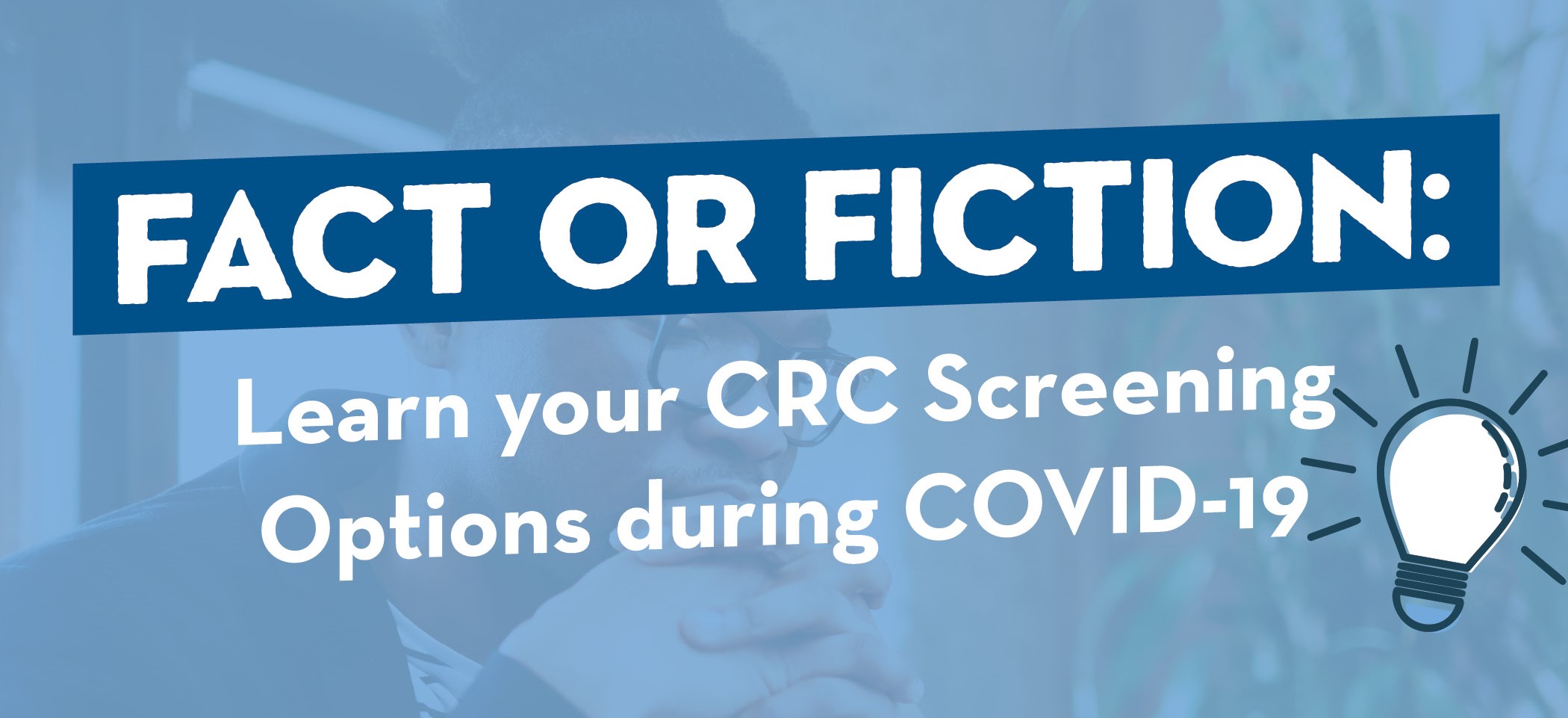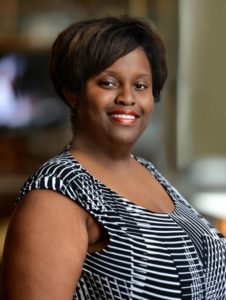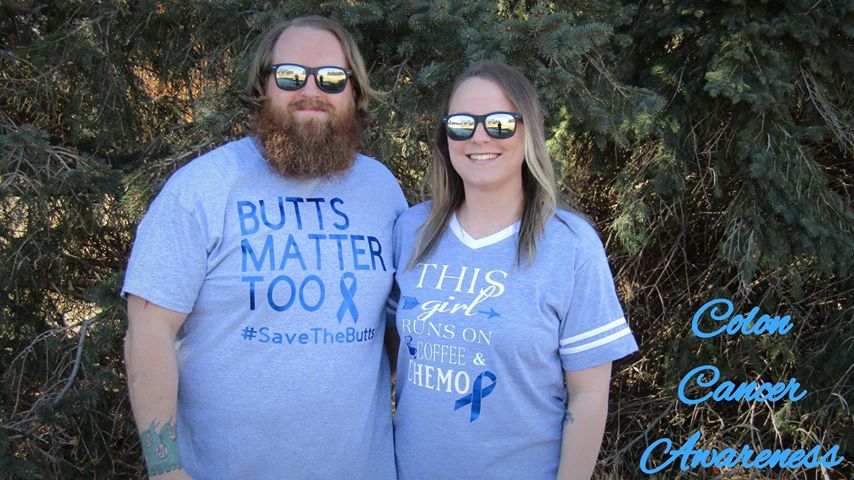
On Tuesday, June 30, the Colon Cancer Coalition partnered with Baylor College of Medicine Dan L. Duncan Comprehensive Cancer Center for a conversation about colorectal cancer and prevention in the time of COVID-19. A replay of that webinar can be found below, followed by a written recap of the Q&A, including some questions the panel didn’t get to answer live.
View the Webinar:
Meet the Panelists:

Milena Gould Suarez, MD
Associate Professor of Medicine in the Division of Gastroenterology at Baylor College of Medicine

Roshanda S. Chenier, Ed.D.
Project Manager and Outreach Officer for the Dan L Duncan Comprehensive Cancer Center, Baylor College of Medicine, Office of Outreach and Health Disparities

Allison Rosen, MS
Lead Project Coordinator at Dan L Duncan Comprehensive Cancer Center at Baylor College of Medicine’s Office of Outreach and Health Disparities and stage II colorectal cancer survivor and advocate

Erin Peterson
Communications Director for the Colon Cancer Coalition
Q & A:
Are they considering lowering the age for [colorectal cancer screening]? Is there a resource book of free testing for the underserved? Do you know of any company that does the Cologuard for free for the underserved? If so, where?
Roshanda Chenier: The screening age for most people has actually dropped to 45. Age 45 is no longer just for African Americans. I am not aware if there are resources for underserved populations to get free colorectal testing. Fortunately in many cities/towns across the US, there are FQHCs and in many metroplex cities, there are safety-net healthcare institutions that will use annual occult blood testing as a screening mechanism. It’s our hope that more partnerships can be established to bridge the gap for FQHCs to aid in follow-up for positive testing for patients to get colonoscopies for follow up for free or reduced cost.
What is the current funding level directed towards use of community based education to inform communities about screening options?
Allison Rosen: Some aspects of Community Outreach and Education have become increasingly common at most cancer centers. The National Cancer Institute (NCI) is beginning to focus more in this area.
If you have been in remission for approximately 5 years, is colon cancer still considered an underlying health factor in regard to COVID?
Dr. Milena Gould-Suarez: Great question. It really depends on what type of treatment you have had and if you have any residual effects.
Are colorectal screening exams still being performed or are people not scheduling them?
Erin Peterson: In many area elective/screening colonoscopies were delayed because of COVID-19. Most, however, were still doing colonoscopies for medically urgent patients (symptom evaluation for follow-up to FIT or other stool-based tests). As more and more communities re-open, it is best to contact your provider to request a screening colonoscopy. Don’t assume care is unavailable.
What are some ways that Lynch patients can reduce their risks? Does diet and exercise make a difference?
MGS: For Lynch patients being screened at recommended times is the most important. Diet and exercise can help too.
EP: If screenings for Lynch syndrome have been delayed because of COVID-19, call your provider to talk about scheduling those. Lynch syndrome screenings may not be considered elective, but rather medically necessary.
Sorry if I just missed it but what is the data source for the %86 reduction in CRC screening since March?
MGS: https://www.statnews.com/2020/05/04/cancer-screenings-drop-coronavirus-pandemic-epic/
How long was the monologue? Can we schedule a virtual viewing?
AR: The monologue shared in the webinar was approximately 12 minutes. The Office of Outreach and Health Disparities has additional monologues in English, Spanish, and Vietnamese. Other monologue videos cover colorectal, breast, and cervical cancer, as well as the HPV vaccine. The lengths vary, 10-15 minutes, and shorter 5 minute versions are avialable as well. All can be found here. Yes, a virtual viewing can easily be arranged, please email us email us at cancerprevention@bcm.edu for more information
How has COVID affected the mental status of colon cancer patients? How are they coping?
AR: COVID can affect people differently mentally, but for me it has caused increased anxiety about going places. I have basically been staying home since the pandemic started and I have learned various ways to cope mentally. I attend online support groups for cancer patients that are free and open to anyone, connecting with others, even just virtually, has helped me get through a lot. You are not alone. It is important to keep busy with virtual exercise, Netflix, Zoom calls with friends and family and work. When I had to go to the hospital for some tests I was very scared but that anxiety went away as soon as I walked in and saw all the precautions they were taking to make sure all who enter are safe. The hospital is truly one of the safest places to travel to right now if you have to.
What are chances of cancer returning after 9 years?
MGS: The overall cumulative recurrence rate between 5 and 10 years after initial surgery was 2.9% for local recurrence and 4.3% for distant metastasis. Among men with no recurrence 5 years after diagnosis of colon cancer, 1 in 12 developed a recurrence between 5 and 10 years, and the corresponding cumulative rate was 7.8%. This data comes from a study from France: Bouvier AM, Launoy G, Bouvier V, Rollot F, Manfredi S, Faivre J, Cottet V, Jooste V. Incidence and patterns of late recurrences in colon cancer patients. Int J Cancer. 2015;137(9):2133–8.
I think it is important to also discuss what happens if someone has polyps upon the colonoscopy. Does the number of polyps or type determine frequency of screening?
EP: Yes, the number and type of polyps can determine if you need to be evaluated at 1, 3 or 5 year intervals. Ask your gastroenterologist about the type of polyp and how many were discovered. Advanced adenomas also mean family members may be at higher risk and should be screened at different intervals as well.
At what age do you not have to have a colonoscopy exam?
MGS: Screening recommendations are to stop colonoscopy at age 75, or when life expectancy is less than 10 years due to other illnesses or other factors.
I am a survivor of 15 years. This year I am supposed to have a colonoscopy. I’m on a 5 year schedule. The last two times I got sick on the prep. The last time I couldn’t even finish half, but fortunately it was enough. I don’t know how I will be able to do the prep this time. I get nauseous just thinking about it.
AR: From one cancer patient to another there are many different options for the prep, ask your provider for alternative prep options, things change and evolve so there might be an easier one you can try. I also chew gum and hold my nose while drinking to help combat the taste!
EP: There are many options for colon prep, including prep done with Miralax and Gatorade. Talk to your gastroenterologist about problems you have had in the past and about alternatives that may be available to you, including some lower volume prep options.
How reliable is the Fecal Occult Blood Test without education for participants? Is there any action to utilize Community Health Workers to help educate communities about this test?
RC: The Fecal Occult Blood Test (FOBT) is an effective screening test to detect traces of blood in a stool sample. However, patients need to know how to properly take the screening test. Utilizing community health workers can be leveraged to educate patients on how to properly take the screening. We, in partnership with Harris Health System and Tomagwa Healthcare Ministries, have created simplified materials to teach patients how to do a FOBT or a Fecal Immunochemical Test (FIT) in the comfort of their own home. We developed simplified culturally and linguistically appropriate educational materials in English, Spanish, and Vietnamese – FOBT and FIT instructional sheets, 2-minute educational videos, and dedicated audio lines for patients. Community Health Workers that service communities that are similar to the patients we serve could easily be used as a catalyst to reinforce education to patients on screening guidelines and how to conduct home testing.
What is the recommended age to begin screening for African Americans or others with strong family history of colon cancer? I ask this question because both of my parents were diagnosed with colorectal cancer. My mom at age 40.
MGS: Patients with a known family history are advised to have your first colon screening 10 years before the age of the youngest family member was diagnosed with colon cancer. Recommendations may vary if your family has hereditary cancer syndrome.
What is the most seen stage at initial diagnosis?
MGS: According to the American Cancer Society:
39% of colon and rectal cancer patients are diagnosed with localized-stage disease.
35% of colon and rectal cancer patients are diagnosed with regional-stage disease.
21% of colon and rectal cancer patients are diagnosed with distant-stage disease.
Do you recommend everyone be vegan?
AR: From a patient perspective I have had to change my diet considerably. As Dr. Gould-Suarez said everything is OK in moderation. I do, however, avoid red meat and processed food and have added more color with fresh fruits and vegetables to my diet with my main meat source being chicken, and I also eat more fish. I am not a nutritionist but balance is key and for all different types of cancer and conditions a healthy balanced diet is always better.
Explain one-time sensitivity for colon cancer with the FIT test which has ~80% sensitivity means.
MGS: A test with 80% sensitivity will correctly return a positive result for 80% of people who have the disease, but will return a negative result — a false-negative — for 20% of the people who have the disease and should have tested positive. This test should be repeated annually.
With much of the discussion around diet and lifestyle, I am curious to know the effort by cancer centers to collaborate with community based groups to improve education. What is the current level of collaboration with community based and faith based groups?
EP: Collaboration with community and faith-based organizations has been proven to be an effective way to reach many minority and underserved communities. It is something the Colon Cancer Coalition has worked to partner in the past and hope to do more of in the future.
Is there anyone using layperson to communicate to their communities about screening options? Do you use social media to communicate with special populations?
AR: Even though I work in our office I use my cancer story often to communicate about the importance of screening tests and options. The community, as well as providers and staff, respond in a more positive way when I show them that I am a real person who has gone through this disease and just want to help get the importance of screening access so that others do not have to go through what I did. Stories from other patients and survivors help as well. I am an advocate within the colorectal cancer community and provide one on one support to patients and this has helped me to be able to communicate better about the cancer journey, as they all are unique.
In our office we have Twitter, Facebook, an easily accessible website, and use YouTube to communicate to all populations that we serve. This is helpful but a combination of this and our grassroots outreach efforts going into the community has proven to be a very successful way to provide education to special populations.
EP: As an advocacy non-profit, the Colon Cancer Coalition uses many social media platforms and other creative ways to reach unscreened communities. Our goal is to find the unscreened where they live. Social media and other traditional and nontraditional media outlets are key to doing that.
Does having confirmed heredity disease such as Lynch syndrome help get your tests approved by insurance?
MGS: From the fightlynch.org
The Genetic Information Nondiscrimination Act of 2007 (GINA) prohibits insurers from using genetic diseases in determining the insurability for patients with Lynch Syndrome. However, if a person develops a Lynch Syndrome related cancer, the GINA Act no longer applies since the condition is no longer pre-existing. It is possible that their insurance rates can go up or that they may not qualify for insurance based on the cancer diagnosis itself; it is unlikely the diagnosis of Lynch Syndrome would affect insurance coverage. However, as of September 23, 2010, the new Health Care Reform act prevents insurers from excluding children with preexisting conditions from being covered by their family policy. Insurers had until January 1, 2014 to rescind preexisting-condition exclusions on adults and a cap on lifetime medical expenses. These federal mandates are a great benefit to individuals with Lynch syndrome, due to the increased risk of multiple types of cancers and subsequent costs of screening and treatment. For these reasons, it is very important to have a good health care policy, and to maintain this policy.
Insurance companies should cover screening tests that are needed for genetic syndromes, but it may depend on your insurance company.
My dad refuses to get a colonoscopy! Tips/trips for convincing stubborn parents to get one? Saying “you could get cancer and die” has not been a successful strategy.
AR: Our videos are meant to help with this sort of dilemma. Stories from real people help convince others of the importance of screening. If you can get someone that is a cancer survivor to talk to your father that might help convince him. I have said it many times, a colonoscopy is so much better than cancer treatment. Also it is proven that communication from a trusted provider/a provider recommendation is proven to help convince all populations of the importance of screening.
EP: For those hesitant to get a colonoscopy for any reason, they may be pleased to hear there are options for colorectal cancer screening that can be done in the privacy of the home. These alternatives include FIT, FOBT, and FIT-DNA (or Cologuard). These tests are less expensive and less invasive than a colonoscopy. Remember, FIT and FOBT need to be repeated annually, while Cologuard is every three years. Another caution with these tests would be that if the result is positive, a colonoscopy will need to be done as follow-up.

